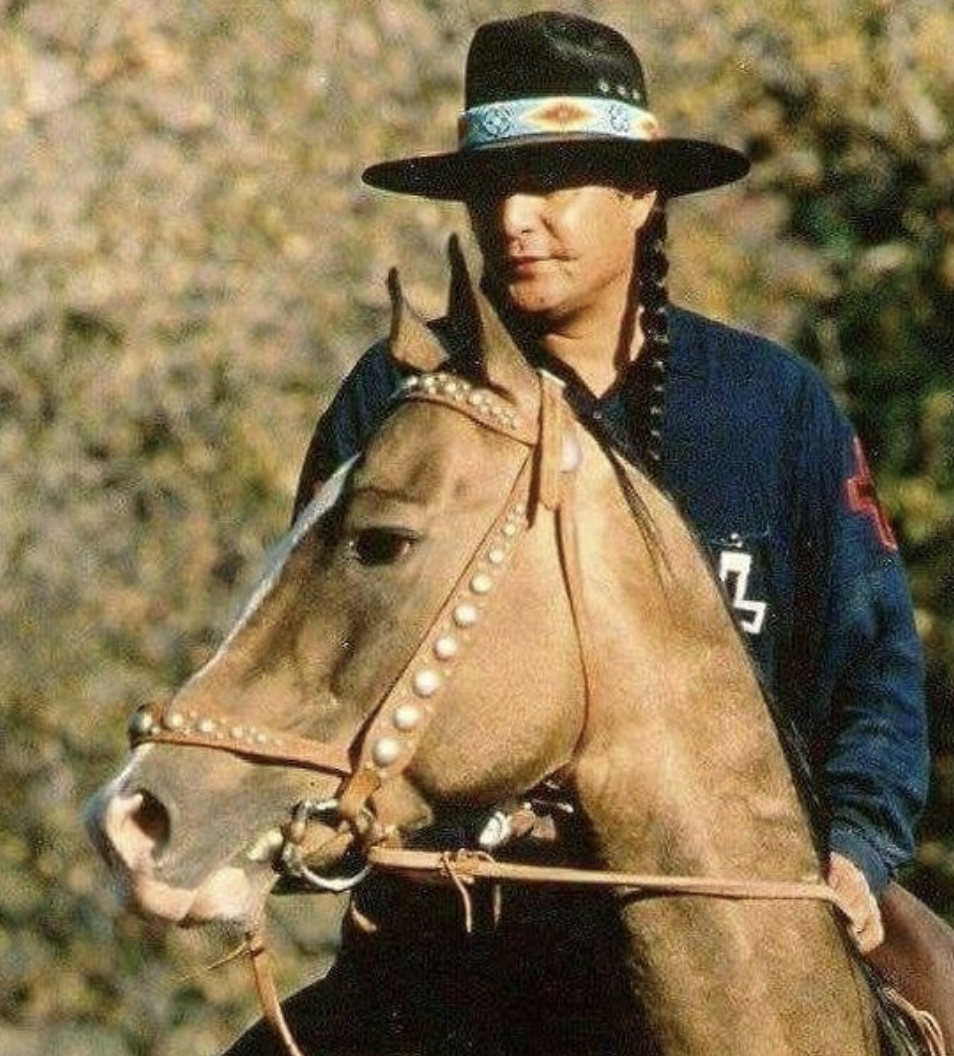
- Details
- By Native News Online Staff
The 25th Navajo Nation Council is mourning the loss of Dr. Rudy Shebala, who passed away peacefully in his sleep on Monday, July 14, at the age of 68, according to a statement from his family.
Dr. Shebala was a devoted advocate for horsemanship, the equine traditions of tribal nations, education, and the preservation of Navajo culture. He earned a Ph.D. and a Master’s degree in Environmental Science, as well as a Bachelor of Science in Animal Science—all from the University of Idaho. From 2019 to 2022, he served as Executive Director of the Navajo Nation Division of Natural Resources.
-A native of Nazlini, Arizona, Dr. Shebala was Deeshchii’nii (Red Streak People), born for Naasht’ezhi (Zuni). His maternal grandfathers were Táchii’nii (Red Running into the Water) and Nát’oh Dine’é (Tobacco People), and his paternal grandfathers were Naasht’ezhi (Zuni).
In 1998, Dr. Shebala partnered with the Nez Perce Tribal Executive Committee to help establish the Nez Perce Horse Registry. This initiative led to the creation of a new horse breed through the crossbreeding of the Appaloosa and the Akhal-Teke, resulting in the Nez Perce Horse.
His son, Sheldon Shebala, described him as an avid reader and lifelong learner who was deeply grounded in traditional Navajo teachings and Diné spirituality.
“He was always researching horses and fascinated by how they became part of tribal cultures and histories,” Sheldon said. “We spent years researching Navajo culture, traveling to college libraries across the country to find rare books that documented our traditions.”
Dr. Shebala is survived by his eight children and eight grandchildren.
Funeral services will take place on Friday, July 18, at 10 a.m. (MDT) at the Nazlini Cemetery in Nazlini, Ariz., followed by a reception at the Nazlini Chapter House.
More Stories Like This
Native News Weekly (August 25, 2024): D.C. BriefsNavajo Nation Mourns the Passing of Former Vice President Rex Lee Jim
Deb Haaland Earns Endorsement From Communications Workers of America Local 7076
University Soccer Standout Leads by Example
Two Native Americans Named to Democratic Congressional Campaign Committee's“Red to Blue” Program
Help us defend tribal sovereignty.
At Native News Online, our mission is rooted in telling the stories that strengthen sovereignty and uplift Indigenous voices — not just at year’s end, but every single day.
Because of your generosity last year, we were able to keep our reporters on the ground in tribal communities, at national gatherings and in the halls of Congress — covering the issues that matter most to Indian Country: sovereignty, culture, education, health and economic opportunity.
That support sustained us through a tough year in 2025. Now, as we look to the year ahead, we need your help right now to ensure warrior journalism remains strong — reporting that defends tribal sovereignty, amplifies Native truth, and holds power accountable.
 The stakes couldn't be higher. Your support keeps Native voices heard, Native stories told and Native sovereignty defended.
The stakes couldn't be higher. Your support keeps Native voices heard, Native stories told and Native sovereignty defended.
Stand with Warrior Journalism today.
Levi Rickert (Potawatomi), Editor & Publisher


